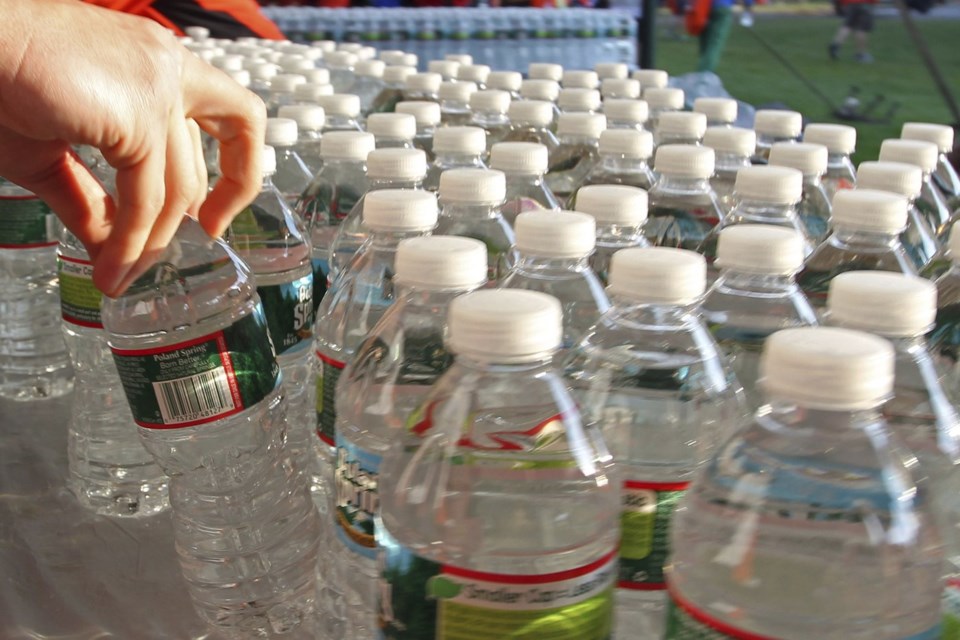MADISON, Wis. (AP) ā The Wisconsin Supreme Court delivered a victory for environmentalists on Tuesday in the fight over āforever chemicalsā known as PFAS, issuing a ruling that advocates said will hold polluters accountable.
The liberal-controlled court ruled that state regulators can force landowners to clean up emerging pollutants such as PFAS before they are officially designated as hazardous substances.
The 5-2 ruling is a defeat for the state's powerful group representing businesses and manufacturers, which had argued the state couldn't enforce regulations on substances before they were officially designated as hazardous.
It is the latest development in a yearslong battle in Wisconsin and nationally involving regulators, environmentalists, politicians and businesses over how to deal with PFAS contamination.
The PFAS problem
Cities large and small across Wisconsin, from Madison to Marinette and La Crosse to Wausau, .
PFAS, or perfluoroalkyl and polyfluoroalkyl substances, are a group of chemicals that have been around for decades and have now spread into the nationās air, water and soil.
The chemicals helped eggs slide across nonstick frying pans, ensured that firefighting foam suffocates flames and helped clothes withstand the rain and keep people dry.
They resist breaking down, however, which means they stay around in the environment and have a hard time breaking down in the body. There is a wide range of health harms now associated with exposure to certain PFAS, including low birth weight, cancer and liver disease.
The Wisconsin case
The Wisconsin Supreme Court ruled in a case brought by the state's largest business group, Wisconsin Manufacturers & Commerce, which sued the DNR in 2021 on behalf of Leather Rich, a dry cleaning business in Oconomowoc.
Leather Rich became aware of PFAS contamination in 2018 and was working on cleaning it up when the DNR posted a message online in 2019 saying it now considered PFAS chemicals a hazardous substance. The agency ordered the dry cleaner to test its groundwater for PFAS but didnāt tell the business which compounds it needed to test for or what levels would be considered dangerous.
Leather Rich argued the DNR can't force businesses to test and clean up contamination from emerging pollutants like PFAS without first designating them as hazardous substances. That process can take years and requires approval from the Legislature. All that time, polluters could harm the environment and put people's health and safety at risk with no obligation to begin cleanup, the DNR argued.
A Waukesha County judge and the state appeals court .
The DNR appealed, saying the lower courtās ruling would neuter the state's āspills law,ā which was designed to confront pollution.
That law, enacted about 50 years ago, requires anyone who causes, possesses or controls a hazardous substance thatās been released into the environment to clean it up.
Wisconsin Supreme Court weighs in
āWisconsinās Spills Law safeguards human health and the environment in real time by directly regulating parties responsible for a hazardous substance discharge,ā Justice Janet Protasiewicz wrote for the majority.
No state law required the DNR to implement a rule before requiring Leather Rich to begin cleaning up the site, she wrote.
āThe DNR has explicit authority to enforce a threshold for reporting the discharge of hazardous substances,ā Protasiewicz wrote.
The courtās four liberal justices were joined by conservative Justice Brian Hagedorn in the majority. Conservative justices Annette Ziegler and Rebecca Bradley dissented.
They said the ruling allows bureaucrats to āimpose rules and penalties on the governed without advance notice, oversight, or deliberation. In doing so, the majority violates three first principles fundamental to preserving the rule of law ā and liberty.ā
Democratic Gov. Tony Evers and environmental advocates hailed the decision.
Evers called it āa historic victory for the people of Wisconsin and my administrationās fight against PFAS and other harmful contaminants.ā
Rob Lee, attorney for Midwest Environmental Advocates, called the ruling āa victory for the health and wellbeing of the people of Wisconsin" that reinforces āa bedrock environmental and public health protection that has kept Wisconsinites safe from toxic contamination for almost fifty years."
But Scott Manley, a vice president at WMC, said the ruling leaves it up to businesses and homeowners to guess about what is hazardous, leaving them subject to ācrushing fines and endless, costly litigation.ā
āThis ruling blesses a regulatory approach that is fundamentally unfair, unworkable, and impossible to comply with,ā Manley said.
Fight over PFAS regulation
Federal regulators on PFAS in drinking water last year, but the Trump administration said in May that it planned to .
The state has imposed less restrictive limits on PFAS in surface and drinking water, defined as piped water delivered through public systems and noncommunity systems that serve places such as factories, schools and hotels.
But it has not implemented PFAS standards for groundwater, the source of drinking water for about two-thirds of Wisconsin residents. The agency to draft them in 2023 after determining that compliance would be too expensive.
Scott Bauer And Todd Richmond, The Associated Press



